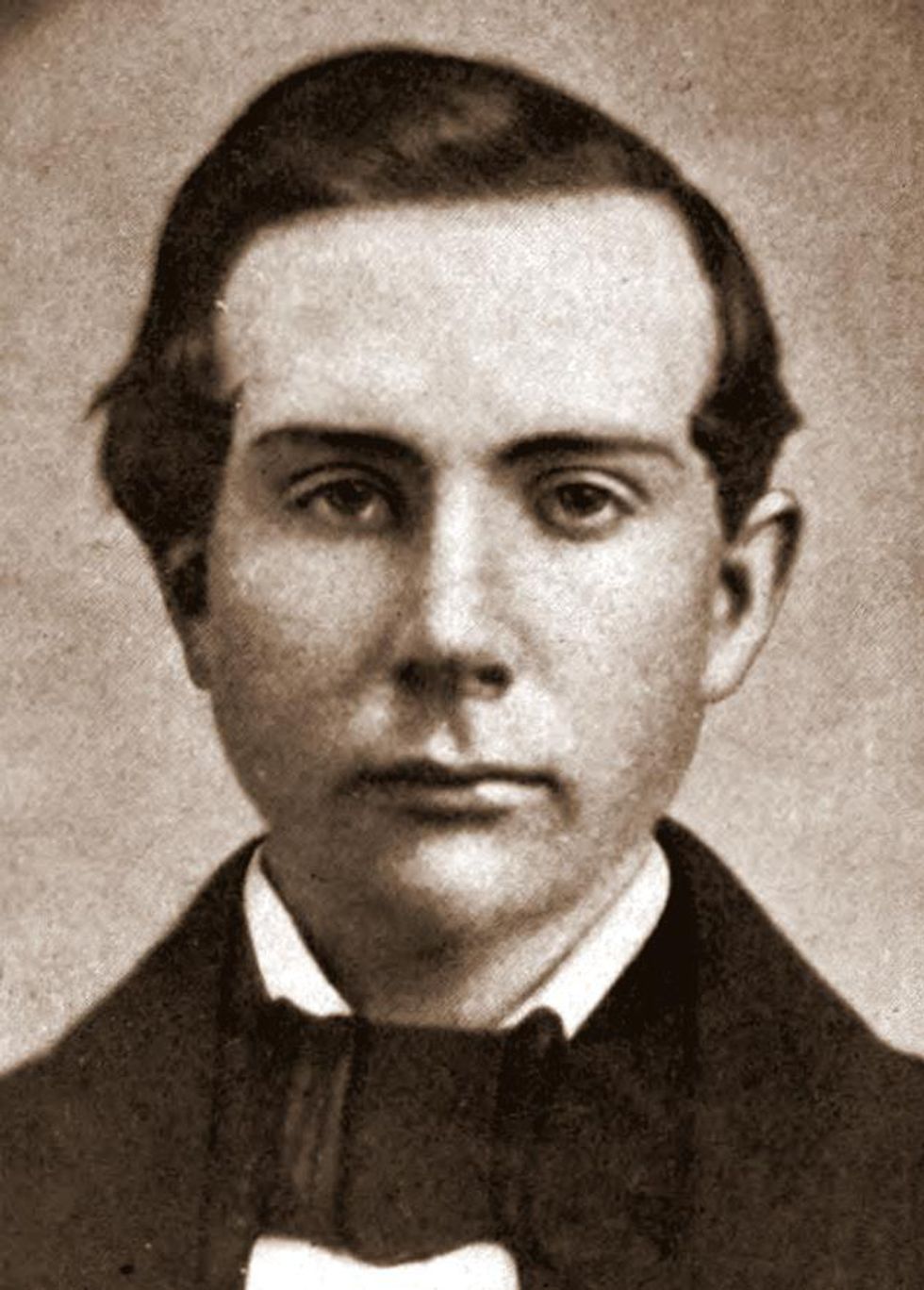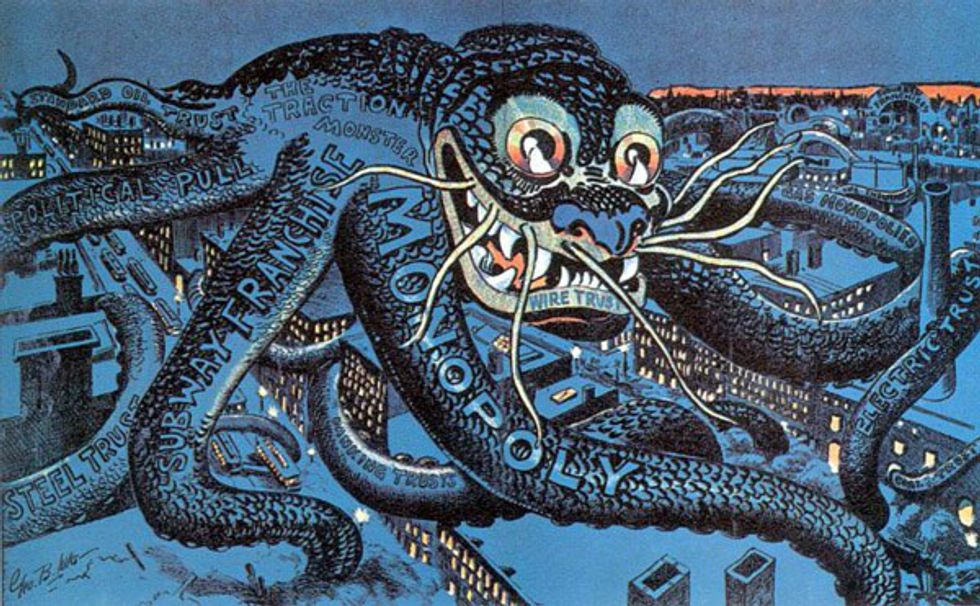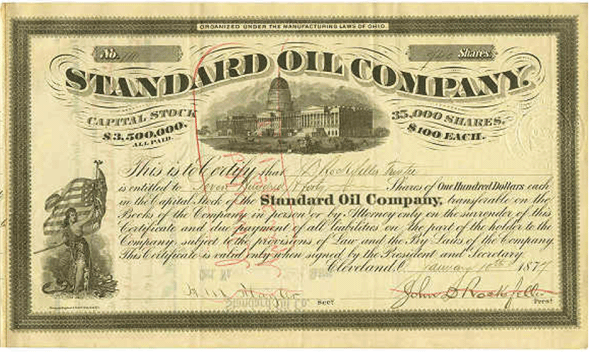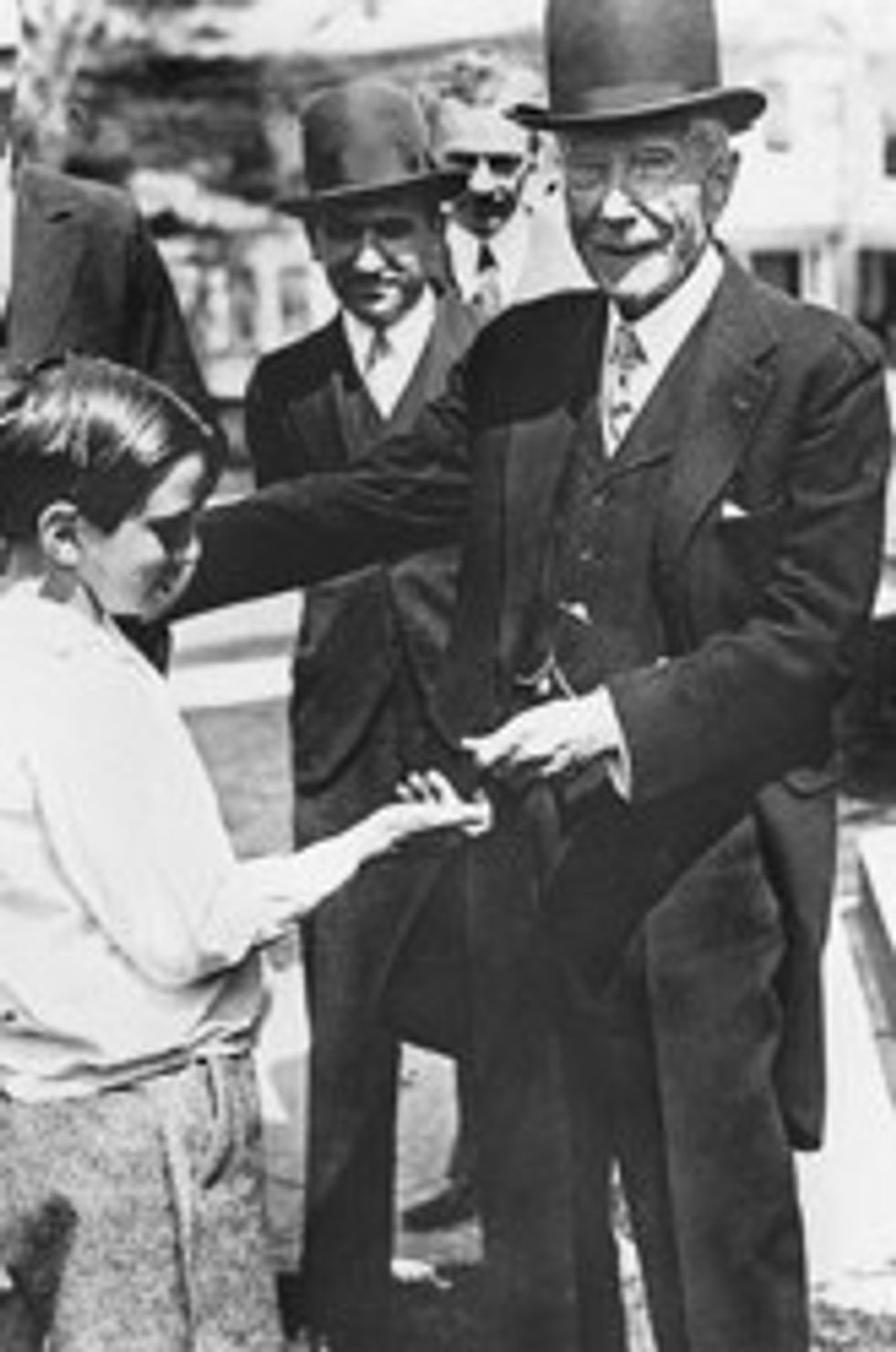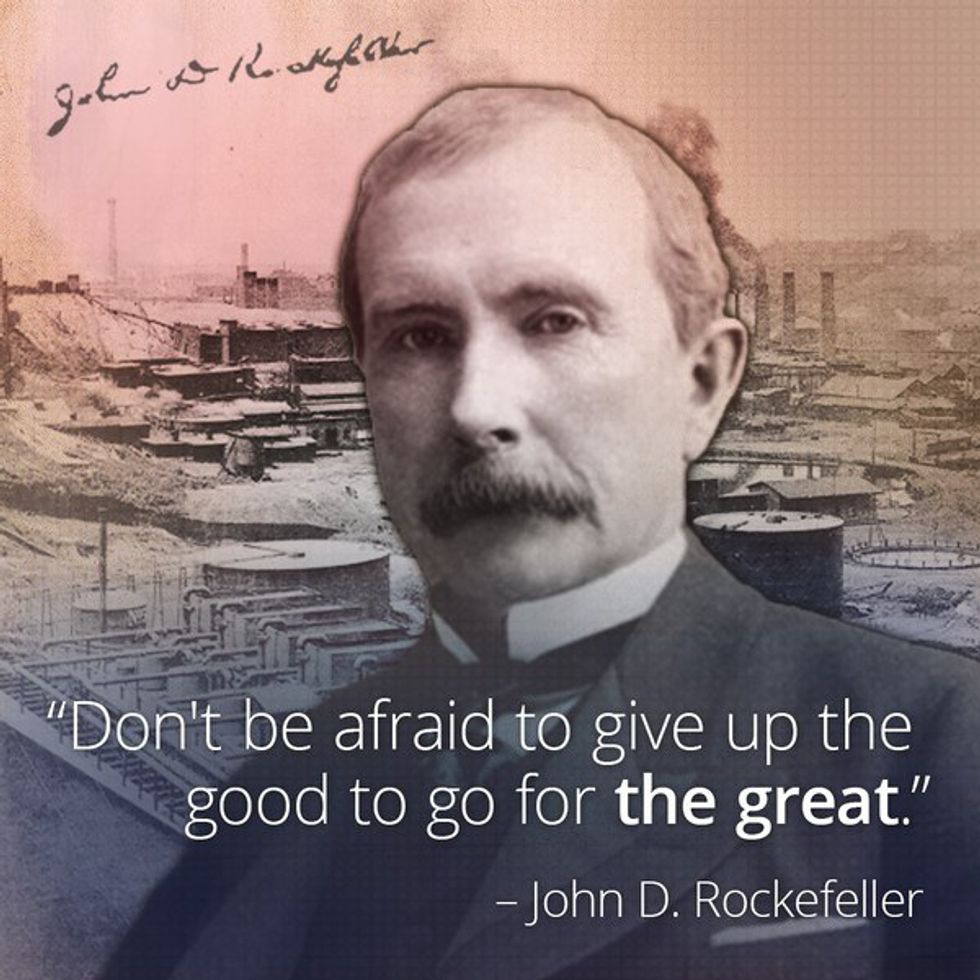What’s it like to be the richest man in America and have more than twice the wealth of the second richest man? Such was the situation John D. Rockefeller found himself in during the twilight years of his life after he had pioneered and monopolized the oil industry with his infamous corporation, Standard Oil.
Ron Chernow’s masterful biography, “Titan,” beautifully captures the life and times of John D. Rockefeller Sr., describing in detail how Rockefeller went from growing up in an impoverished, puritanical household in the mid 19th century, with an absent (and bigamous) father, to acquiring an unprecedented amount of wealth and becoming the most generous philanthropist in history.
Rockefeller started Standard Oil near his hometown in 1870 in Cleveland, Ohio, at about the time it became clear that oil could be refined and sold to use for practical purposes. Long before oil was discovered in other parts of the world, the Midwest was one of the only known places oil was thought to exist. In a perfect instance of being in the right place at the right time, Rockefeller was at the center of a colossal business opportunity. Combined with his natural aptitude for mathematics and scrupulous attention to detail, Rockefeller, it appeared, was born to do big business (something Rockefeller wholeheartedly believed throughout his career).
As the book aptly describes, Rockefeller led two very different, almost contradictory lives. In one, he was an extremely strict Baptist who possessed an obsession with frugality and strongly frowned upon such scandalous activities as dancing, going to the theater and collecting art, opting instead to devote his entire social life to his church. In the other, he was a ruthless businessman who never thought twice about absorbing and acquiring smaller businesses to add to his own (through various methods that, largely due to Rockefeller’s and Standard Oil’s actions, are illegal today), which made him synonymous with the words “evil” and “corporate greed” in the minds of many middle-class Americans.
Though Rockefeller justified his business actions as being a favor to the public -- in return for cheap oil from his company -- he, nonetheless, was the first to create the image of the American corporation as a nefarious conglomerate out to take advantage of smaller businesses and businessmen. The sheer magnitude of a company the size of Standard Oil had never been seen before, and many people were terrified of its awesome power.
Inevitably, American politicians took action and ordered that Standard Oil be broken up into different parts, having determined the company to have become a monopoly. Ironically, Rockefeller earned the majority of his wealth from this decision, as the massive amount of shares of Standard Oil stock he possessed went public several times in the form of new companies. If politicians tried to bring Rockefeller back down to Earth, they failed miserably.
By the end of his famously long life (he expressed hope of living to be 100 and died just under two years shy of that), public opinion about him had completely reversed. Never believing in spending exorbitant sums on meretricious and materialistic items, Rockefeller devoted his long retirement to philanthropic endeavors, and the American public was greatly rewarded. He was the founder of the prestigious University of Chicago; he aided African Americans in obtaining an education after the civil war and he started one of the world’s leading medical research foundations under his name.
Operating under the philosophy of spending a third of one’s wealth, saving a third and giving away a third, he ended up giving away billions during the last decades of his life. He became famous for dispensing nickels and dimes to people wherever he went; if a business partner hit a good shot in a golf game, or a small child approached on the street for an amicable chat, out came the nickels and dimes (always followed by a warning not to make him sad by spending them on frivolous things).
Though most Americans have never heard of him, John D. Rockefeller Sr. was one of the most fascinating Americans to have ever lived and, arguably, was the most successful businessman of all time. Ron Chernow’s “Titan” is a must read for all people interested in the relationship between big business and the general public, as well as both the positive and negative effects of colossal private wealth. Most importantly, however, the book is a paragon of what a single determined individual with the right resources and an unquenchable thirst for success can accomplish in the United States of America.




